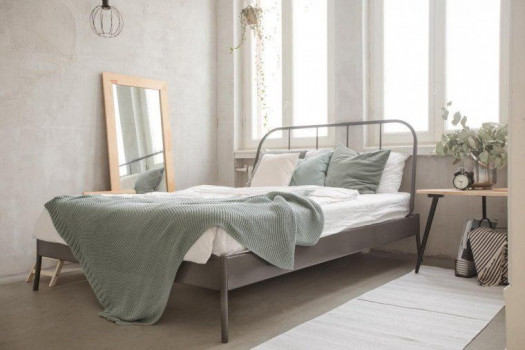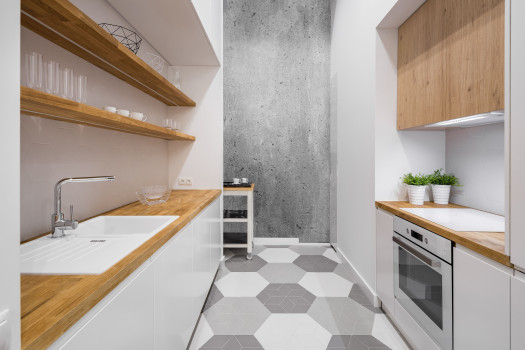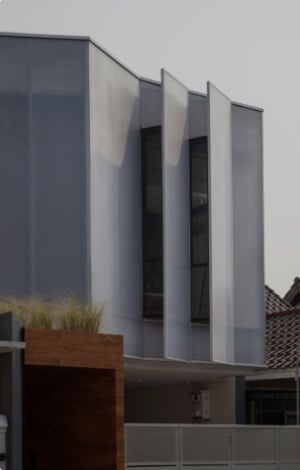Apply Industrial Style in Your Interior




It is safe to say that the industrial style is flexible and can be easily applied in homes or even commercial buildings. ‘Flexible’ here means that it is not difficult to find decent materials, furniture, lightings and accessories in the market. Here are several industrial design characteristics that you can apply to create a proper industrial style for homes or offices.
Open-plan
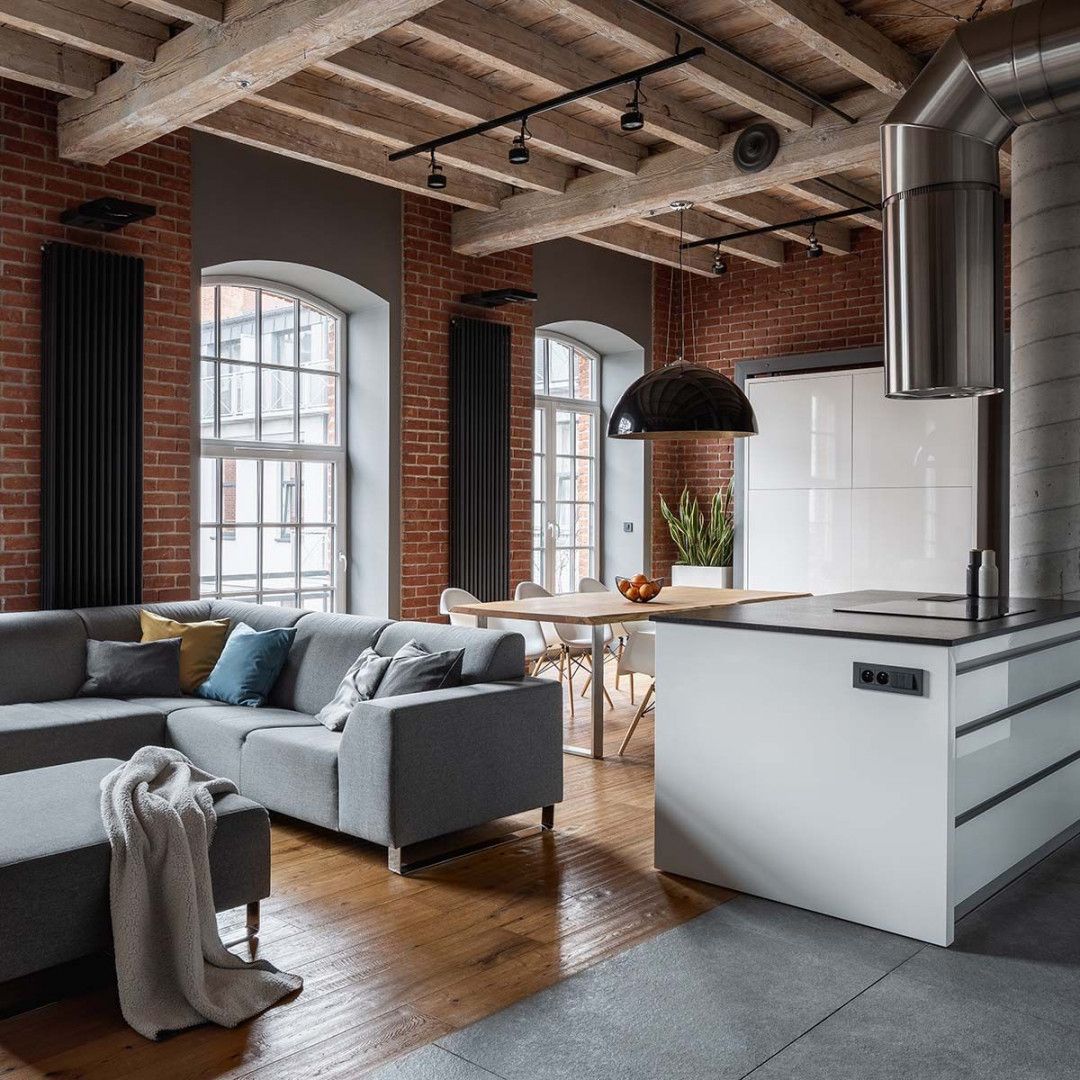
©Shutterstock
Industrial style is ideally applied in a spacious room with an open plan design without massive or solid partitions. This characteristic emerged from reusing old factories or warehouses that were designed in an open-plan designs. If you find difficulty in working with space that is too open, you can divide furniture pieces into clusters to define spaces.
Mezzanine or void area
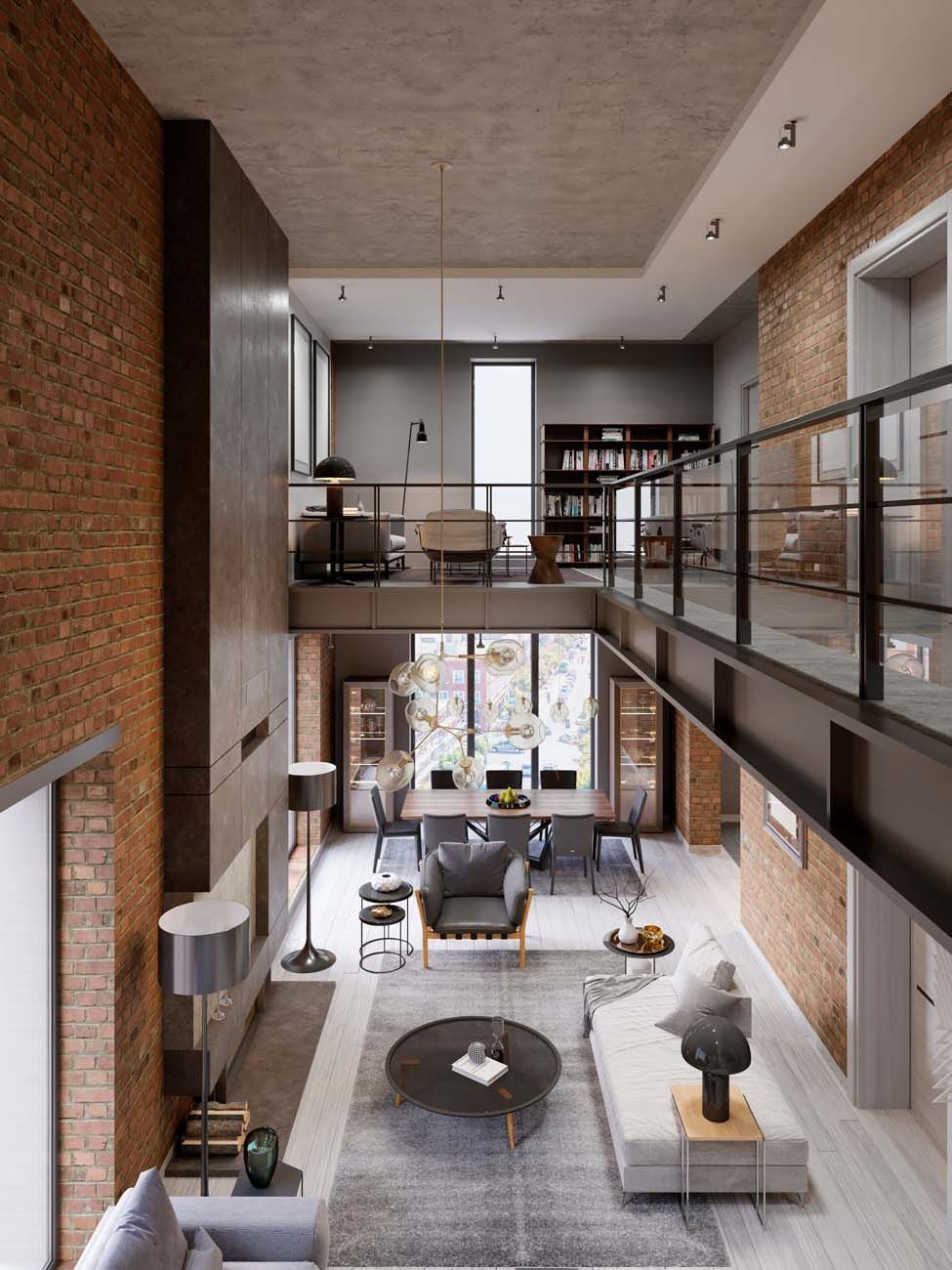
©Shutterstock
If it is possible to create a mezzanine in the available space, make use of the railing and stairs going up to the mezzanine to create an apparent industrial accent. If the floor plan of the ground floor has an open-plan layout, you can set up a more private room in this mezzanine.
Exposed structural and mechanical elements
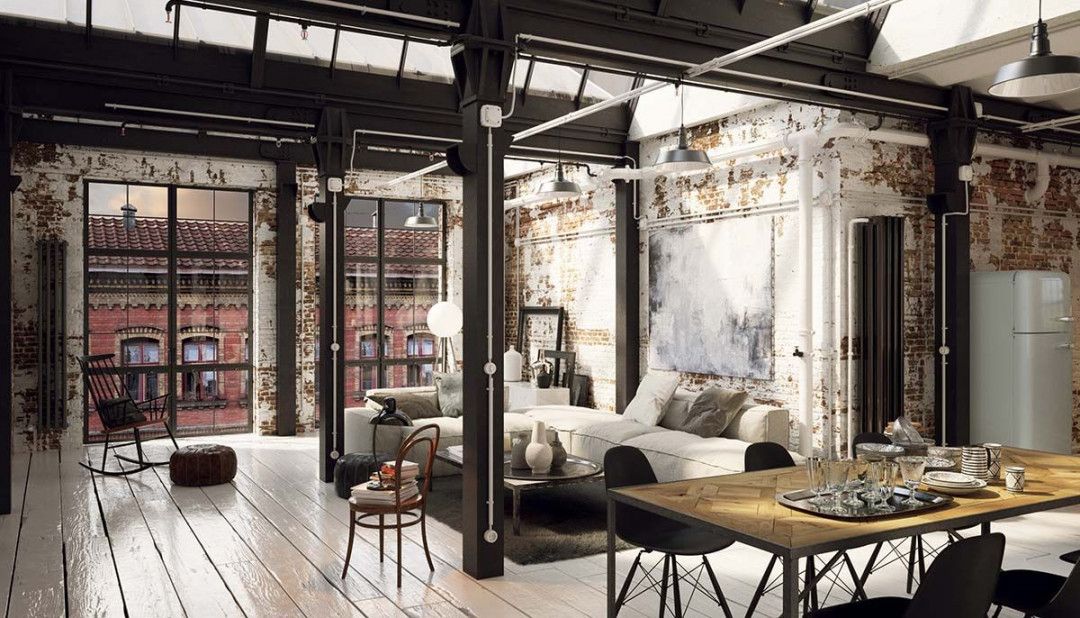
©Shutterstock
One of the distinctive characteristics of this style is the preference to leave the structural or mechanical parts of a room uncovered. Mechanical or electrical elements that are usually exposed are air conditioners ducting, water pipes and even power cables. Exposed pipes or cables can be painted in certain colours to enhance the aesthetics of the room. Structural elements that are usually highlighted in an industrial style design are roof beams/roof frames, unpainted columns, brick walls, concrete floors and others.
The combination of metal and timber
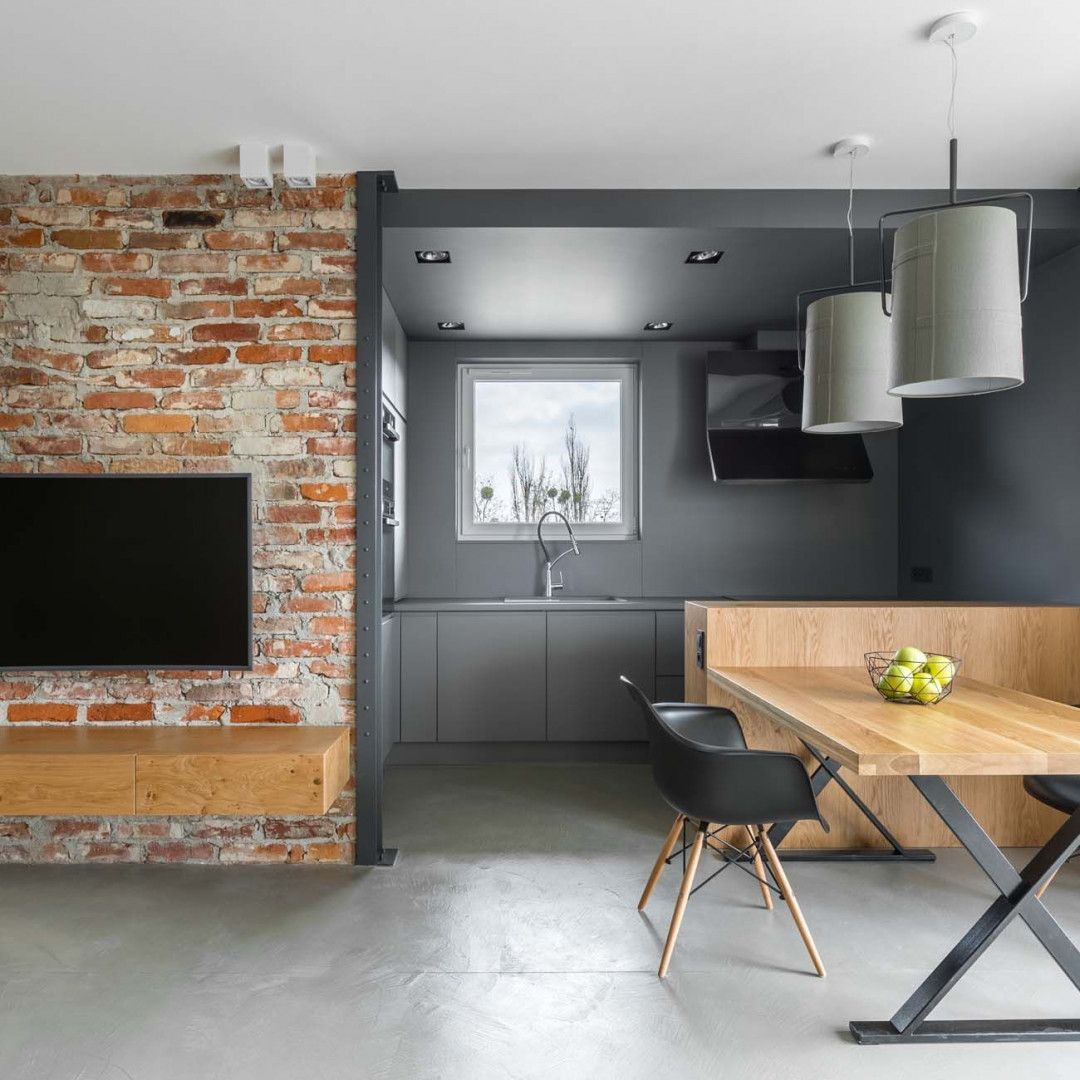
©Shutterstock
Metal and timber are two materials dominantly used to represent an industrial interior style. Metal materials that conjure up cool ambience usually go well with timber that brings up warm impression. To brighten up the interior, use metals with chrome finishing and bright-coloured timber. If you fancy an antique, dark and rustic look, choose black metals and reddish mahogany timber.
Repurposing furniture and decorations
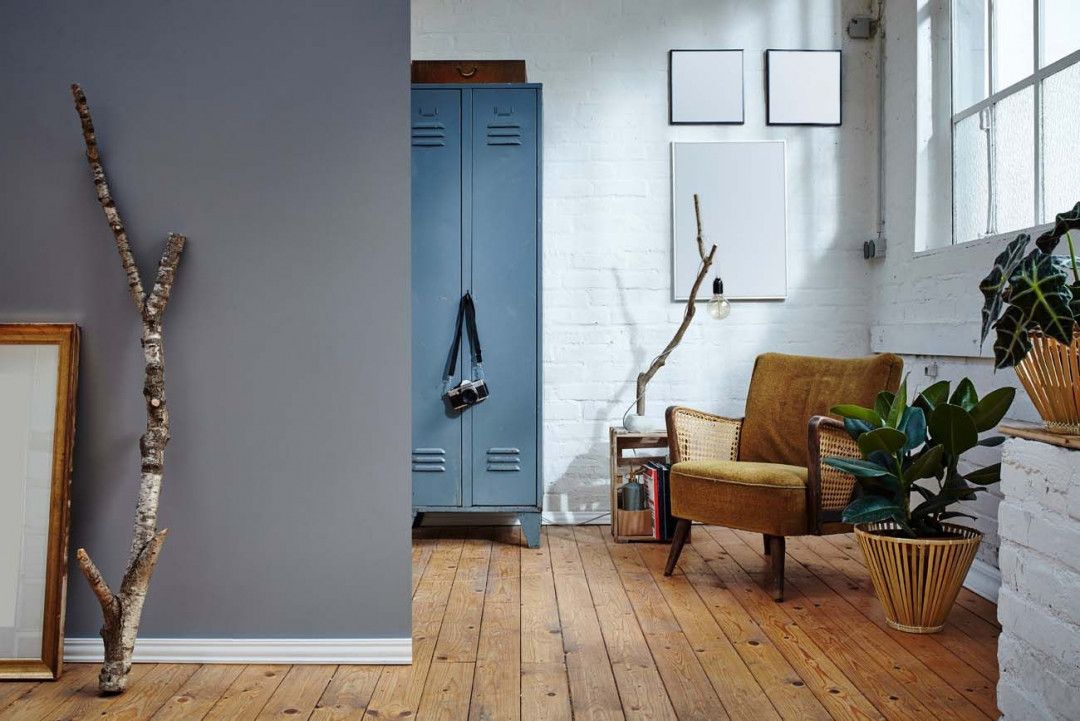
©Shutterstock
The industrial style is in fact closely related to sustainability as it reuses old factory buildings for a new purpose. Repurposing materials or furniture can also be applied. To make your industrial style personal and authentic, an ideal way would be to use decorative elements that are recycled or upcycled from old furniture or decorations. Besides being environmentally friendly, recycling can for sure enable you to save budget for construction or renovation.
Neutral colour scheme
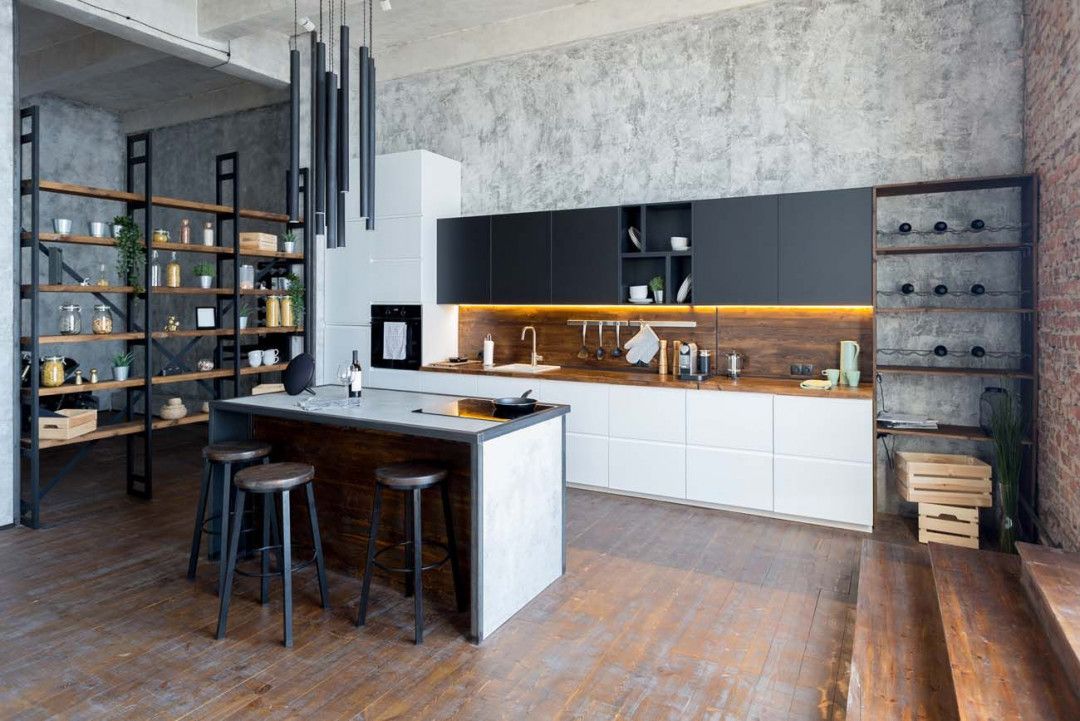
©Shutterstock
To balance out the use of strong and heavy metal and timber, you can use neutral or monochrome colours like white or grey as the general colour for the interior. These general colours work as a ‘canvas’ or background so that furniture, accessories, or other eye-catching accent materials are more visible.




 Indonesia
Indonesia
 New Zealand
New Zealand
 Philippines
Philippines
 Hongkong
Hongkong
 Singapore
Singapore
 Malaysia
Malaysia


